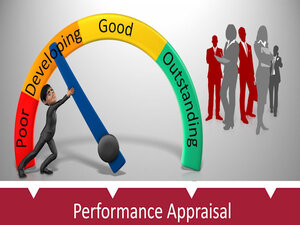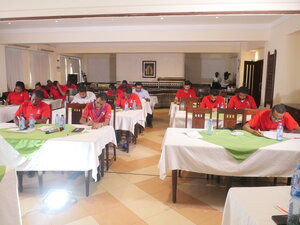Course Overview
Performance Evaluation A strategic way to ensure an organization’s efficacy and efficiency is through training. You must similarly evaluate at the organizational, departmental, or employee levels. As a result, the purpose of performance evaluation is to guarantee that all corporate goals are being met satisfactorily.
You will employ useful tools like SMART goal planning, performance evaluations, and 360-degree feedback in this situation. You will be taught best practice techniques, for instance, so that you can use them to oversee the performance of your team.
Therefore, performance management is not a method that a firm uses to “micro-manage” its people in a way that prevents their professional development. So, the best way for you and your team to conduct performance appraisals is with the aid of performance appraisal training.
An efficient performance review process assists management in making decisions related to tasks such as salary administration, discipline, and promotion. By addressing performance difficulties, long-term problems, such as legal liability, can be avoided. Performance criteria are applied correctly by designing a personalized performance review program and instructing workers on its use. In the end, increased employee performance lowers costly errors, boosts productivity, and inspires all staff to reach strategic objectives.



Course Objectives
- What is performance management?
- Analyze how performance management functions and the instruments that enable it.
- Analyze the three performance management phases.
- Evaluate the success of each step.
- Implement effective goal-setting and learn how to incorporate it into performance management.
- Practice providing performance management comments.
- Discuss ways to engage individuals differently depending on where they are in the Kolb Learning Cycle as you interpret it.
- Learn more about the effects of strong motivation at work.
- Create a performance plan and a performance log.
Management & Supervisory Training Highlights
Training Feedback
Happy Customers
Course Outline
Lesson 1: Starting the Workshop Goals
Lesson 2: What is performance management?
- “The Basics” (I).
- What Is the Process of Performance Management?
- Tools
Lesson 3: The Fundamentals (II)
- Three-Phase Process Evaluations
- Performance Evaluation
Lesson 4: Goal Setting SMART Goal Setting Specific Goals
- Measurable Objectives
- The Reachable Goals
- Realistic Objectives
- Timely Objectives
Lesson 5: Monitoring Results
- Setting Performance Objectives
- Planning Strategically
- Job Evaluation
- Making Objectives
Lesson 6: Degree Feedback
- 360 Degree Feedback: What Is It?
- Customary Performance Reviews
Lesson 7: The Components Case Study
- Competency Evaluations
Lesson 8: Kolb’s Learning Cycle Experience Observation Conceptualization Experimentation
Lesson 9 – Motivation Key Factors Competency Assessment Defined Implementation Final Destination
- The Motivation Organization’s Personal Motivators Identification
- Assessing and adapting
Lesson 10: The Performance Journal: Record Your Objectives and Successes
- Connecting with Your Managers or Employees
- Putting a Performance Coach in Place
- Maintaining Focus Case Study
Lesson 11: Prioritizing Goals and Desired Results in a Performance Plan
- Study of a Measure Evaluation Case
Lesson 12: Concluding
Who Should Attend
- Senior marketing directors or managers
- Relationship managers and
- Customer relationship managers
- Professionals in customer service, supervisors,
- Team leaders, and managers
- Sales experts, salespeople, and sales analysts
- Entrepreneurs and founders of startups
Trainers Available for:
- In-House Trainings
- Online Training
- 2 Hours Crush Program
- Half Day Program
- One Day Program
- Two Days Full Program
Training Techniques
- Power point Presentations
- Engaging conversations
- Case studies
- Exercises in solving problems
- Focus Group Conversations
- Games in Management
- Skits and modeling the part
Request a Quote

